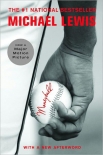Moneyball by Lewis, Michael (books to read in your 30s TXT) 📗

Book online «Moneyball by Lewis, Michael (books to read in your 30s TXT) 📗». Author Lewis, Michael
“Since we’re talking about Brown anyway,” says Paul, which wasn’t exactly true, since the scouts were now distinctly not talking about Brown, “there’s a list of hitters I want to talk about. All of these guys share certain qualities. They are the eight guys we definitely want. And we want all eight of these guys” He reads a list:
Jeremy Brown
Stephen Stanley
John Baker
Mark Kiger
Shaun Larkin
John McCurdy
Brant Colamarino
Brian Stavisky
All eight are college players. Most of them are guys the scouts either did not particularly like, or, in a few cases, don’t really know. A young man rises to put their names on the board. Paul quickly organizes them, like a dinner guest who has spilled his wine and hopes to clean it up before the host notices. When he’s finished, the board is a market but from a particular point of view, that of a trader who possesses, or believes he possesses, superior knowledge.
With that, the coup was complete. Paul’s list of hitters were distinctly not guys the scouts found driving around. They were guys Paul found surfing the Internet. Some of the names the older scouts do not even recognize. The evaluation of young baseball players had been taken out of the hands of old baseball men and placed in the hands of people who had what Billy valued most (and what Billy didn’t have), a degree in something other than baseball.
“There’s some serious on-base percentage up there,” says Billy. No one else says anything. The room is filled with silence.
“We got three guys at the top of the board that no one has ever heard of,” Pitter finally says, with just a trace of pride.
“There isn’t a board in the game that looks like this one,” agrees Bogie.
Bogie brought into the draft room something unique: vast experience to which he had no visceral attachment. He’d been in the game for nearly fifty years. He’d seen a lot, perhaps everything, and he was willing to forget it, if asked. As it happened, one of the things he had seen, back in 1980, was a high school game in San Diego. That was the year that the Mets took Darryl Strawberry with the first overall pick in the draft. But that year there was another high school player, who, in his ability to conjure fantasies in the baseball scouting mind, rivaled Strawberry. Bogie had gone to see him at the behest of the Houston Astros. Great body, plus wheels, plus arm, good instincts, and the ability to hit the ball over light towers. To top it off, he’d scored higher than any other prospect on the psychological tests. Bogie had phoned Houston and told the front office that he had found a better prospect than Darryl Strawberry: Billy Beane.
When asked which player, on the Oakland A’s draft board, most resembled the young Billy Beane, Bogie said, “Shit, man. There is no Billy Beane. Not up there.” When asked why, he’d said, “Billy was a guy you could dream on,” and left it to you to understand that Billy Beane, the general manager, had just systematically eliminated guys “you could dream on.” But when asked what became of those still unforgotten dreams, Bogie hesitated. He looked over and met the eye of the grown-up Billy Beane.
“That’s enough!” said Billy. He’d only been pretending not to listen. Bogie just smiled, shrugged, and said no more.
Chapter
III
The Enlightenment
The Mets had had only the greatest expectations of him. They’d wanted to hold a big press conference in Dodger Stadium to announce his signing. Billy asked them not to. He had a claustrophobic unease with ceremony of any kind, and a press conference was nothing but a ceremonial event. It’d make him feel trapped. Plus he didn’t want to make a big deal about becoming a pro baseball player. It was less a decision to celebrate than a vaguely uncomfortable fact to get his mind around. The Mets failed to consider the cause or implications of his reticence. In the belief that Billy was more ready for pro ball than Darryl Strawberry, they sent Strawberry to the low-level rookie team with the other high school kids and Billy to the high-level rookie team, in Little Falls, New York, with the college players. Little Falls, New York, could not have felt farther from San Diego, California. His teammates might as well have been a different species than the high school kids he was used to playing with. They had hair on their backs and fat on their stomachs. They smoked before games and drank after them. A few had wives. And all of the pitchers had sliders.
The Mets were betting that Billy was better equipped than Strawberry to deal with the pressures, and inevitable frustrations, that went with playing against much older players. Roger Jongewaard, the Mets’ head scout, fully expected Billy to rocket through the minors and into the big leagues well ahead of Strawberry. The Mets scouting department had badly misjudged Billy’s nature. They had set him up to fail. If there was one thing Billy was not equipped for, it was failure. He didn’t even begin to know what to make of a stat sheet at the end of his first short season in high-level rookie ball that showed him hitting .210. He didn’t know how to think of himself if he couldn’t think of himself as a success. When the season ended he returned home, enrolled in classes at the University of California at San Diego, and forgot that he played baseball for a living. He didn’t so much as pick up a bat or a glove until spring training the following March. That in itself should have been an ominous sign, but





Comments (0)